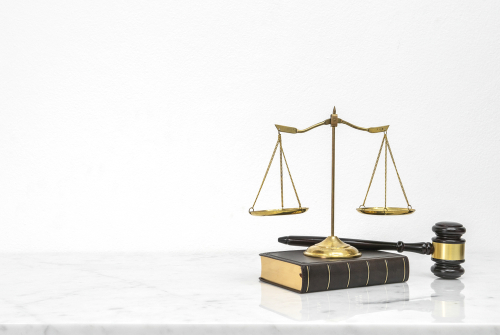Charge bargaining and sentence bargaining pertain to the terms by which a defendant pleads guilty. Charge bargaining involves the defendant pleading guilty to a lesser offense than the one with which they were originally charged. Sentence bargaining involves the defendant pleading guilty to the charges against them in exchange for a specific sentence.
Plea Bargaining Overview
90 to 95% of criminal cases result in some type of plea bargaining, like charge bargaining and sentence bargaining, according to the Department of Justice’s Bureau of Justice Assistance. As the Columbia Law Review points out, these plea bargains can be quite nuanced and take several forms.
When a person is charged with a crime, the prosecutor in their case may work with the defendant (typically through their attorney) on a plea bargain. The prosecutor keeps three types of plea bargains in their negotiating toolbox: charge bargaining, sentence bargaining, and count bargaining.
The prosecutor’s motivation for striking a plea bargain is to avoid the time-consuming trial process. The defendant’s motivation for agreeing to a plea bargain is to dodge the risk of being convicted for a more serious charge with a more severe sentence.
While the focus here is on charge bargaining and sentence bargaining, it is worth noting that another type of plea bargaining—count bargaining enables the defendant to plead guilty to a smaller number of charges. The end result is essentially the same across all types of plea bargains: reducing the penalty/sentencing or providing some other concession for the defendant.
Sentence Bargaining
With this type of plea bargain, the defendant is offered an alternative or lighter sentence in exchange for their guilty plea. One example of this type of plea bargain is when a defendant pleads guilty to a murder charge in exchange for the death penalty being taken off the table at sentencing. In a less serious type offense, a guilty plea can be traded for a sentence of “time served.”
Charge Bargaining
In this type of plea bargain, the defendant agrees to plead guilty but to a lesser offense. For example, both sides might agree that a defendant charged with attempted murder pleads guilty to the reduced charge of aggravated assault, which carries a lighter sentence than attempted murder.
Judges’ Involvement in Plea Bargains
Typically, the judge plays a limited role in plea bargaining, although both the prosecution and defense can confer with judges to decide on the sentence the defendant will face if they accept a sentence bargain. A federal judge will make the final decision regarding the defendant’s sentence, however, whether or not their decisions coincide with recommendations made by the prosecutor.
Plea Bargains as Contracts
It is important to recognize that plea bargains are considered valid contracts and the courts treat them as such. If the defendant violates some aspect of a plea bargain, the agreement established in the plea bargain is no longer enforceable.
The prosecutor need not uphold their end of the contract. That said, if the prosecutor goes back on their promise as agreed upon in the plea bargain, the defendant also has recourse and can seek some form of relief from the judge, including the withdrawal of a guilty plea.
What to Expect in the Actual Plea Bargaining Process
The plea bargaining process typically takes place in a conference room in which only the defendant, their lawyer, and the prosecutor are present. In some instances, the judge may attend, but the victim of the crime will never be in the room as this matter is negotiated (although they might have a say in the process).
Furthermore, the public is not privy to the details of a plea bargain until everyone has agreed on all aspects of the contract. Once both the prosecutor and defendant agree to the terms of the plea agreement, it usually must be approved by a judge before it is considered valid.
DOJ Research on Plea Bargains
In its research on plea bargaining, including charge bargaining and sentence bargaining, the Department of Justice’s Bureau of Justice Assistance concluded the following:
- The majority of cases conclude with some type of plea bargain.
- Prosecutorial discretion in the bargaining process results in discrepancies in the outcome of the sentencing.
- Defendants who opt to go to trial rather than accept a plea have a greater chance of receiving harsher sentences.
- Prior records, the seriousness of the charge, and other legal factors play a role in determining if a charge will be reduced and, if so, by how much.
McKenzie Law Firm Can Defend You and Protect Your Legal Rights
As a former prosecutor, attorney David McKenzie of McKenzie Law Firm, P.C., has worked both sides of a plea bargain. He will use what he learned during his time as a prosecutor to facilitate the best outcome for you, both in your plea agreement and in this entire legal process.
The entire McKenzie Law Firm, P.C., team will work tirelessly to ensure that your legal rights are upheld. Call us today for a legal consultation: (610) 680-7842.



